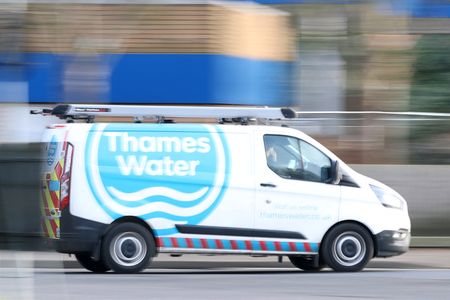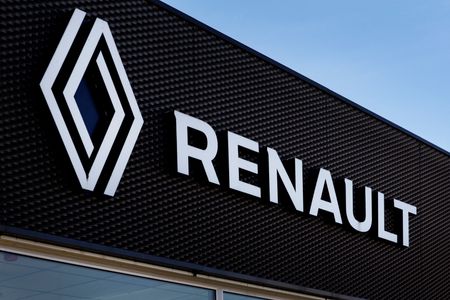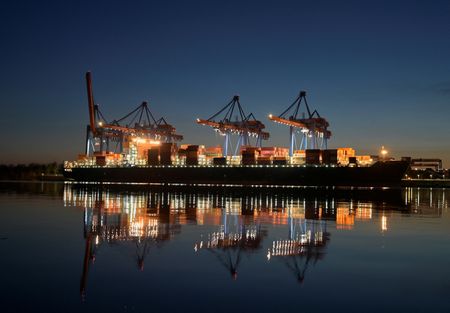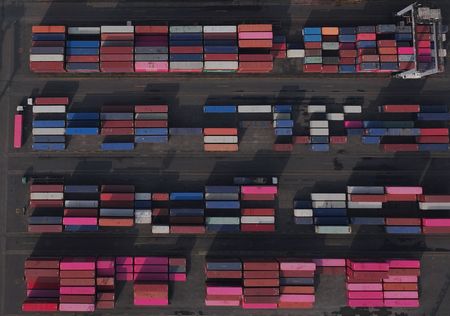By Paul Sandle
LONDON (Reuters) -Thames Water reported an annual pretax loss of 1.65 billion pounds ($2.22 billion) on Tuesday and a downturn in its environmental performance, with sewage spills up by a third, as the debt-laden utility seeks to fight off nationalisation.
The British company, which said it had sufficient funds to continue operating for 12 months, is in talks with its senior creditors and regulators to secure a 5 billion pound rescue to stabilise its balance sheet.
For the deal to go ahead, it wants regulatory changes, including new targets that would reduce the penalties and fines that contributed to the loss.
“We recognise that our current gearing is too high and, to address this, we are progressing with our senior creditors’ plan to recapitalise the business which will see us return to a more stable financial foundation,” Chief Executive Chris Weston said.
“This will come with a requirement to reset the regulatory landscape and acknowledge it will take at least a decade to turn Thames around.”
The company said there was a “material uncertainty” as to whether it could deliver the recapitalisation.
Should it fail, special administration could be necessary, it said. That would see the government take control of the company to ensure it continued to supply water.
The loss reported by the company for the year to end-March included a 1.27 billion pound provision against a loan from its parent company that it does not deem recoverable, 122 million pounds in fines, 198 million pounds of restructuring plan fees and 151 million pounds of restructuring costs.
The company, which has 16 million customers in London and southern England, said it had made progress, but its pollution record was “disappointing”.
High rainfall in 2024 – the second-wettest year on record for parts of southern England – led to a 34.3% increase in pollution spills to 470 incidents, the company said, adding that it would invest record amounts in its sewage network over the next five years.
This year by contrast has been exceptionally dry, resulting in the company imposing a hosepipe ban in some regions. London, which has high groundwater levels, has escaped restrictions.
The company said although it had faced an increasingly challenging financial position, with gearing increasing to 84.4%, its underlying performance had strengthened, with revenue up by 8% and core earnings up 10%.
($1 = 0.7443 pounds)
(Reporting by Paul Sandle in London and Pushkala Aripaka and Raechel Thankam Job in Bengaluru; Editing by Rashmi Aich, Kate Holton and Barbara Lewis)











